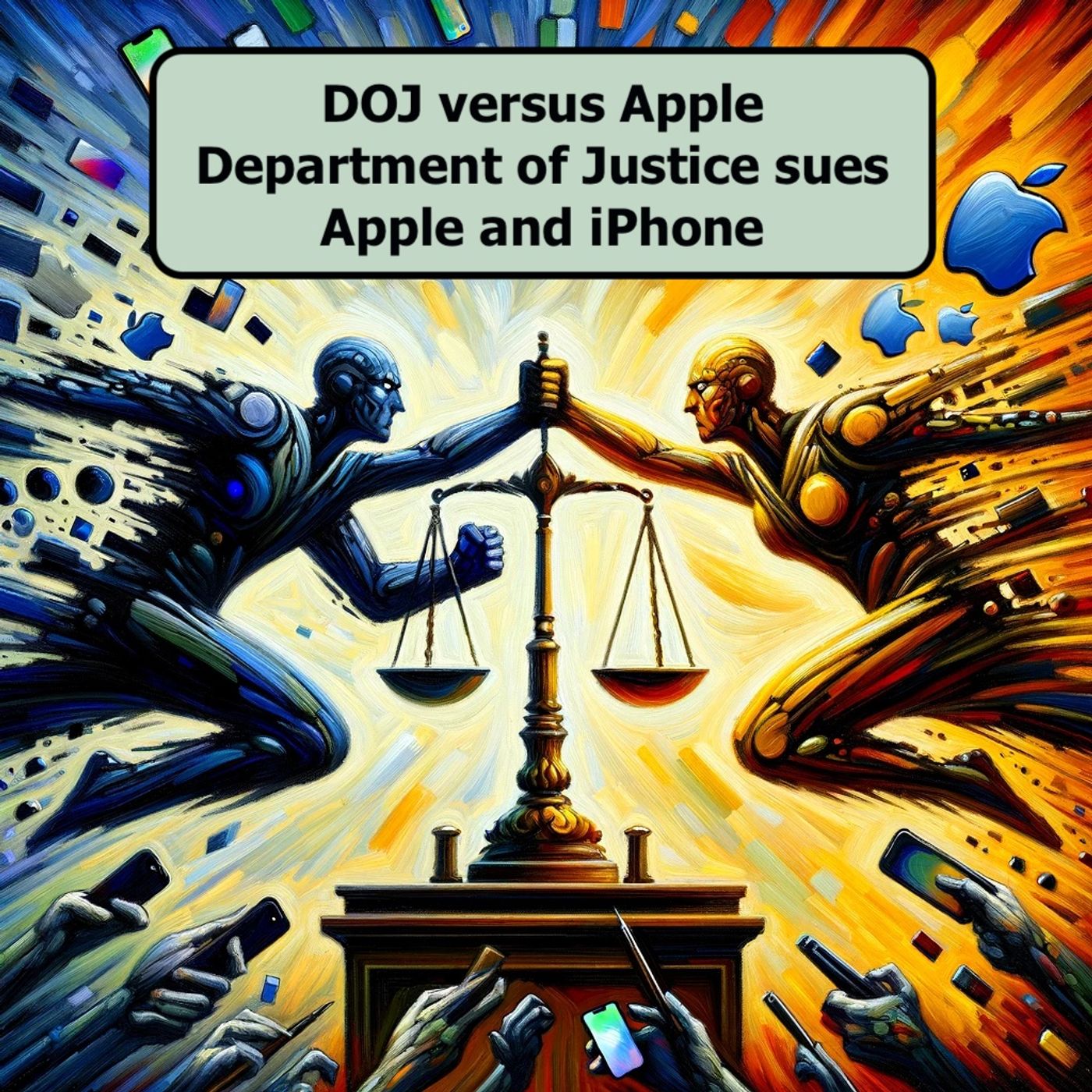Nov 21 2024 3 mins
In an unexpected turn of events, the American multinational technology company, Apple Inc, has currently besought a U.S. judge for the dismissal of a lawsuit that originates from the Department of Justice. The lawsuit accuses Apple of preventing its competition from prospering in the iOS App Market.
Apple Inc, which has been a frontrunner in the technology market worldwide, is renowned for creating and manufacturing electronic devices and developing software platforms. Nevertheless, this tech giant has recently been on the receiving end of a lawsuit led by the Department of Justice.
The heart of the dispute lies within the allegations made by the Department of Justice. The Department squarely maintains that Apple has embarked on unfair business behavior by discouraging potential contenders from penetrating the iOS App Market. Moreover, it suggests that Apple has created an anti-competitive environment for other software developers by imposing a series of restrictions.
The Department of Justice points towards the 30% commission that Apple charges on all digital purchases and subscriptions made via its platform, along with other App Store rules like limiting developers from informing customers about cheaper alternatives outside the App Store environment. According to the DOJ, these practices have not enabled a fair or competitive landscape in the digital market space and thus, is detrimental to other software developers looking to push their applications and platforms into the iOS App ecosystem.
However, Apple has staunchly contested these allegations, mentioning that the claims brought forth by the Department of Justice are misconstrued and contain several errors. The Cupertino-based company defends the 30% commission, arguing that it is a standard rate, analogous to what other digital marketplaces also impose.
Moreover, Apple argues that these strict App Store rules are vital in ensuring the safety and protection of its users. It adds that its innovative software environment, governed by its rules, has not only created a safe and reliable space for its customers but also facilitated developers to render high-quality applications.
The case stands at a crucial juncture as Apple now implores a U.S. judge to dismiss the antitrust lawsuit, citing that the allegations brought against the company are misinterpreted and lack substantial evidence. The decision of the judge could have important implications not only for Apple but also for the broader digital market. It brings into spotlight the balance that needs to be struck between fairness of competition and the protection of users in this age of digital transformation.
As we watch this legal drama unfold, it can be clearly understood that the outcome of this lawsuit will decide the path ahead for technological giants like Apple and their engagement with the ever-evolving digital market landscape.
Apple Inc, which has been a frontrunner in the technology market worldwide, is renowned for creating and manufacturing electronic devices and developing software platforms. Nevertheless, this tech giant has recently been on the receiving end of a lawsuit led by the Department of Justice.
The heart of the dispute lies within the allegations made by the Department of Justice. The Department squarely maintains that Apple has embarked on unfair business behavior by discouraging potential contenders from penetrating the iOS App Market. Moreover, it suggests that Apple has created an anti-competitive environment for other software developers by imposing a series of restrictions.
The Department of Justice points towards the 30% commission that Apple charges on all digital purchases and subscriptions made via its platform, along with other App Store rules like limiting developers from informing customers about cheaper alternatives outside the App Store environment. According to the DOJ, these practices have not enabled a fair or competitive landscape in the digital market space and thus, is detrimental to other software developers looking to push their applications and platforms into the iOS App ecosystem.
However, Apple has staunchly contested these allegations, mentioning that the claims brought forth by the Department of Justice are misconstrued and contain several errors. The Cupertino-based company defends the 30% commission, arguing that it is a standard rate, analogous to what other digital marketplaces also impose.
Moreover, Apple argues that these strict App Store rules are vital in ensuring the safety and protection of its users. It adds that its innovative software environment, governed by its rules, has not only created a safe and reliable space for its customers but also facilitated developers to render high-quality applications.
The case stands at a crucial juncture as Apple now implores a U.S. judge to dismiss the antitrust lawsuit, citing that the allegations brought against the company are misinterpreted and lack substantial evidence. The decision of the judge could have important implications not only for Apple but also for the broader digital market. It brings into spotlight the balance that needs to be struck between fairness of competition and the protection of users in this age of digital transformation.
As we watch this legal drama unfold, it can be clearly understood that the outcome of this lawsuit will decide the path ahead for technological giants like Apple and their engagement with the ever-evolving digital market landscape.
